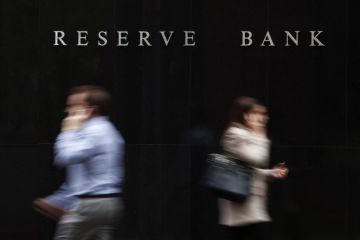Australians feel embarrassed about our personal finances and debt, survey shows

Australians are feeling embarrassed about our personal financial situations as household debt hovers at record levels, a new survey shows.
And both younger and more mature Australians are likely to look at our neighbours and feel we have not kept up with the Joneses, financial experts say.
More than one-third of people feel embarrassed by their financial habits, a survey of more than 1000 people conducted by broker Mortgage Choice found.
Some 42 per cent of those surveyed were embarrassed by their personal debt, while one-third tended to hide the fact they were in debt and one-fifth only paid the minimum amount owing on their credit card each month.
Most of those surveyed who were in a relationship had common financial goals with their partner, but more than three in 10 did not share all their good and bad financial habits with their significant other.
The cost of living remains a hot button issue, with dwelling prices in the largest capital cities still at eye-watering levels after a five-year bull run despite a recent slowdown.
Falling interest rates have trimmed the monthly repayments due by mortgage-holders while cutting the returns on offer for savers.
Even so, Australia’s household debt-to-disposable-income ratio is stubbornly high at about 190 per cent, compared to 70 per cent in the early 1990s, on Reserve Bank figures.

Habits such as not paying off a credit card balance or spending more than their pay cheque each month might be contributing to the sense of shame about personal finances, Mortgage Choice chief executive Susan Mitchell said.
“Feeling defeated by your finances is often the result of feeling out of control,” she said. “This is especially common when it comes to debt.”
She encouraged anyone in this situation to start by taking pen and paper and writing down all their assets and liabilities, before asking for professional advice.
“Realise you are not alone and there is no shame in asking for help,” she said.
With interest rates falling, hitting a historic low of 1 per cent on Tuesday, lower repayments could offer some relief to borrowers, she said.
“Falling interest rates may help to bolster confidence in people’s ability to pay down their debt,” she said.
“News of cash rate reductions may also serve to start conversations around finances.”

Financial planner Alex Hont says new clients often arrive feeling “a little bit sheepish”.
“They haven’t got a plan, they haven’t really got any direction in what they’re doing,” the partner at Moran Partners Financial Planning said.
“They’re a little bit apprehensive to talk about the areas they know that they’re lacking in.”
In terms of housing, he sees Baby Boomers who have not bought a house or feel they sold a house at the wrong time, and say they missed out on the boom in house prices since the 1980s that their friends enjoyed.
The grass isn’t always greener: other clients who did buy are close to retirement but still have a big mortgage.
“There’s a lot of keeping up with the Joneses or hearing about all the success stories of some of your friends,” he said.
He urges anyone feeling embarrassment about their finances to speak to a professional who can suggest options and project their likely results.
Younger clients also commonly felt they hadn’t kept up with their friends, said mortgage broker Will Unkles, 40Forty Finance director.
“Social media is a key driver – most of my clients are in that 25 to 35 bracket,” he said.
“They see what everyone else is doing today, they assume that is how everyone else lives their life.”
For example, buyers who grew up in the inner city feel embarrassed about having to move further out to purchase their first home, he said.
He encourages clients to remember the fortunate position they are in, although he will also work on practical habits such as paying down debt or cutting up credit cards.
We recommend
RBA holds the cash rate again
Christmas gift: RBA holds cash rate at 4.35 per cent
We thought you might like
States
Capital Cities
Capital Cities - Rentals
Popular Areas
Allhomes
More






